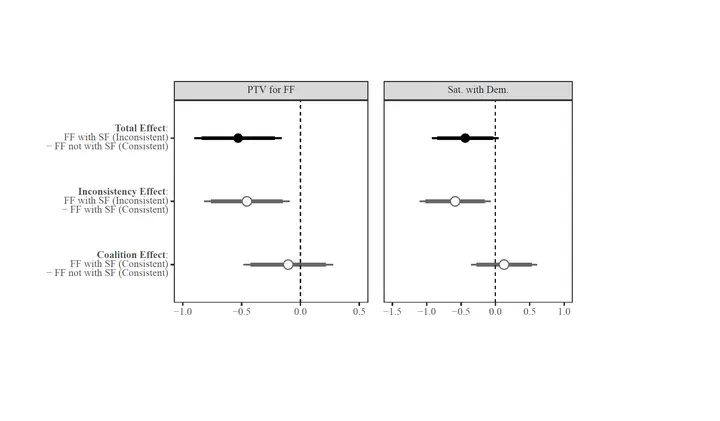How Voters React to Parties Breaking their Pre-Electoral Coalition Promises: Experimental and Quasi-Experimental Evidence from Ireland and New Zealand

Abstract
In proportional systems, parties generally signal their coalition preferences to voters during election campaigns. Breaking coalition promises after the election entails normatively undesirable repercussions for government identifiability and accountability. This study is the first to investigate voters’ short-term reactions to post-electoral coalition choices of parties in conflict with pre-electoral coalition signals. Firstly, I performed a quasi-experimental investigation that considers an instance of inconsistent coalition choice following the 1996 New Zealand election. Secondly, I conducted an innovative survey experiment during the government formation period following the 2020 Irish general election. I find that breaking coalition promises is costly not only for the inconsistent party but also for democracy in general. Inconsistencies concerning coalition choices make voters less likely to support the inconsistent parties and erode voters’ satisfaction with the way democracy works. The findings provide important implications for government identifiability and accountability in proportional systems, democratic stability, and the effectiveness of cordons sanitaires vis-à-vis radical parties.